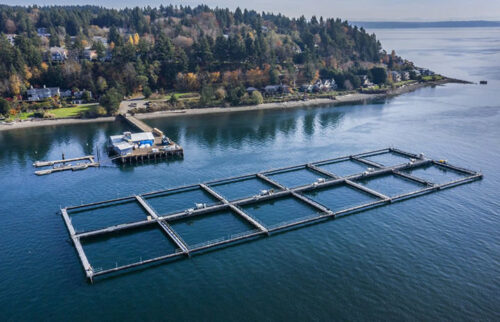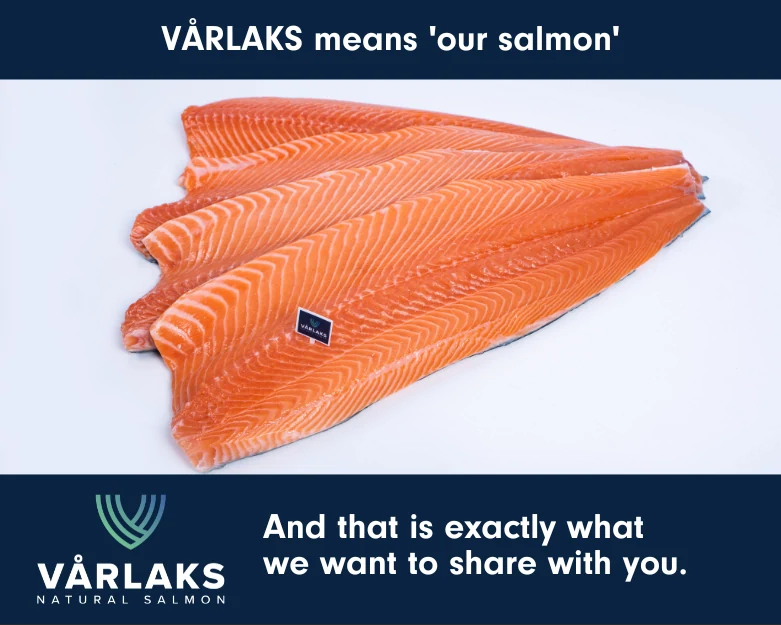“This State Supreme Court opinion lays to rest the array of disinformation about marine aquaculture being irresponsibly circulated by activist groups.”
In a landmark opinion filed today, the Washington State Supreme Court ruled unanimously (9-0) to reject a group of environmental organizations arguments and upheld a permit granted to Cooke Aquaculture Pacific by Washington Department of Fish and Wildlife (WDFW) for the farming of Pacific Steelhead trout.
The Wild Fish Conservancy, Centre for Food Safety, Centre for Biological Diversity, and Friends of the Earth failed as petitioners alleging that WDFW’s permitting process violated the State Environmental Policy Act (SEPA), as well as the Fish and Wildlife Code.

The ruling
The Honorable Justices of the Court ruled in favor of WDFW and Cooke:
- Found that farming of steelhead would not have probable, significant adverse impacts on the environment while finding that WDFW’s comparison of steelhead farming to the possible impacts of Atlantic salmon farming “was appropriate.”
- Held that WDFW’s comparison of the impacts of steelhead farming to the current, existing condition of the environment of Puget Sound, where salmon farming had occurred for three decades, was not clearly erroneous and was consistent with SEPA’s requirements.
- The court dismissed all of the Wild Fish Conservancy’s arguments regarding possible adverse environmental impacts including arguments about disease were without merit and that in the case of disease outbreaks in net pens, “there is limited evidence that these transmissions result in disease in the wild population” and that “transmission from farmed Atlantic salmon to wild salmonid populations presents a low risk and the transmission from farmed steelhead presents the same or even lower risk.”
- Completely dismissed concerns regarding sea lice, finding that WDFW relied on “multiple studies” to support the continued conclusion that sea lice in Puget Sound waters is not a concern because of low salinities.
- Found WFC’s arguments regarding bycatch to be without merit, noting that their allegations are “unsupported in the record” and that WDFW imposed numerous conditions to address the concern regarding bycatch.
- The “net pen-facilities do not involve the type of unresolved conflicts that would trigger” an environmental review process SEPA that would require considerations of alternatives.
Disinformation
“This State Supreme Court opinion lays to rest the array of disinformation about marine aquaculture being irresponsibly circulated by activist groups,” said Joel Richardson, Vice President of Public Relations for Cooke Aquaculture Pacific.
In 2019, the Jamestown S’Klallam Tribe announced a joint venture with Cooke Aquaculture Pacific to rear native steelhead trout. Salish Fish is a partnership of The Jamestown S’Klallam Tribe and Cooke Aquaculture Pacific. Based in Port Angeles on the Olympic Peninsula, Salish Fish is constructing a state-of-the-art aquatic farm designed to provide locally grown, high-quality seafood in an environmentally sustainable way.
“The Tribe has two interwoven goals in everything we do – to be stewards of the environment in protecting the unique ecosystems of our homelands and the Salish Sea and continue to gather our treaty resources to fund programs and services for our tribal citizens. Aquaculture allows us to utilize best practices in protecting the environment while continuing our traditional industries growing and gathering marine-based resources,” said W. Ron Allen, Tribal Chairman and CEO, Jamestown S’Klallam Tribe.












